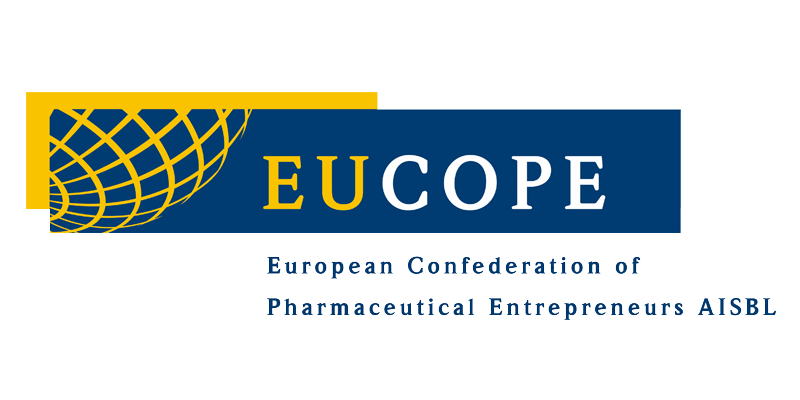The revision of the general pharmaceutical legislation, Orphan Medicinal Products (OMP) and Paediatric Regulations presents a unique opportunity to build on the success of the existing rules and create a competitive and innovative healthcare ecosystem over the next two decades and beyond. Providing adequate incentives to small and mid-sized companies, the key drivers of pharmaceutical innovation, is a fundamental pre-condition to address underserved areas and ensure patients’ access to scientific progress.
The EU Pharmaceutical Package introduces numerous regulatory provisions that will streamline and digitise regulatory process, and improve the functioning of the pharmaceutical ecosystem. However, the proposed Package will also revise the incentive framework for innovative medicines in general and OMPs in particular. Incentives, such as Regulatory Data Protection (RDP) and Orphan Market Exclusivity (OME), will see reductions to their baseline period, and modulated upon certain conditions that are difficult to fulfil and will de facto create unpredictability in the ecosystem. Such proposed conditions are the so-called (high) unmet medical needs and the launch conditionality.
(High) Unmet Medical Needs (HUMN)
The concept of (H)UMN is introduced within the EU Pharmaceutical Package, with the intention to address underserved areas. It is evident that important unmet needs remain. However, the current proposal of (H)UMN is restrictive, making it unpredictable as to which products will be able to reach this high threshold. Using (H)UMN as the main tool to stimulate research risks hindering innovation and overlooking patients who can still benefit from important innovations, as first-to-market therapies will not necessarily treat all individuals in a population or sub-population. This unpredictability is further compounded as the concept changes, making the long-term investments needed for the development of a new therapy riskier. Moreover, medicinal products will receive a ‘stamp’ of (H)UMN. This will have broad consequences, creating a ranking and impacting P&R, with implications on those products that do not receive the ‘stamp’, despite their major potential benefit to patients. This approach will not address the underlying problems contributing to the absence of therapies in underserved areas and potentially see wasted resources if research is driven to areas where science may not exist, at the expense of innovation that can benefit others. Additionally, the (H)UMN ‘judgement call’ is done at a very early stage before sufficient data can be collected and risks discouraging research and innovation, as well as (H)UMN being assessed at least twice (at EMA and P&R levels).
Launch Conditionality
Another key concern is the introduction of a launch conditionality. A launch conditionality will be particularly punitive for small and mid-sized companies, who will not be able to launch in all 27 EU Member States, due to limited resources. This effectively functions as a ‘tax’ on smaller innovative developers who will inherently receive fewer incentives. In addition, this conditionality does not consider the unique characteristics of specific technologies, like ATMPs, or disease areas, such as rare diseases. These characteristics render a blanket condition to launch in all Member States virtually impossible, because patient populations are heterogeneous across the Union and Member States may lack the expertise or infrastructure these technologies require. Moreover, the condition fails to take into account that industry is not the sole decision-maker involved in launch: access decisions depend on EU Member States, their pricing policies and national health priorities. The launch conditionality will not make the EU life sciences sector more attractive for investment nor address the underlying patient access challenges. It risks leading to fewer innovative medicines being launched in the EU or more delays in these therapies coming to Europe. Instead, we urge policymakers to build and improve on existing legislative initiatives and structures that address the root cause of access delays.
Predictability rewards investments
RDP and OME are key incentives to reward companies for the investment and risks associated with developing a therapy and undertaking the required clinical trials. They also support commercializing such innovative therapies in the EU, protecting clinical trials data while undergoing health technology assessment (HTA) and pricing and reimbursement (P&R) procedures. For the EU to remain a competitive ecosystem, these incentives require predictability. Unfortunately, this is missing by linking RDP and OME to conditionalities and this will disproportionately affect small and mid-sized companies. EUCOPE acknowledges the concept of modulating OME and recognises its need, but this should not be done on the basis of HUMN, instead it should follow the framework developed by the OD Expert Group, a multi-stakeholder Group, including patients, research, academia, clinicians and industry. This framework allows for upward and downward modulation according to five key principles, with the objective to drive investments where there are no treatment options, while maintaining a strong ecosystem in therapeutic areas where advancement is needed.
We must provide enough and predictable incentives to encourage innovation and reward investments, without preventing research and development in innovative molecules or indications. This is the only way to ensure the EU will remain an attractive and competitive environment for small and mid-sized companies – an ecosystem that rewards investments and fosters biopharmaceutical innovation that will benefit all patients.
You can read the full EUCOPE response to the Pharmaceutical Package here.
In partnership with

This article was produced in partnership with EUCOPE. For 15 years, the European Confederation of Pharmaceutical Entrepreneurs (EUCOPE) has been the voice of small and mid-sized health technology companies in Europe. Representing 2600+ biopharmaceutical companies directly or through national associations, EUCOPE advocates for sound public policy that supports innovation, while fostering a community built on a shared purpose: improving and saving the lives of European patients through ground-breaking therapies and medical technology. www.eucope.org
Sign up to The Parliament's weekly newsletter
Every Friday our editorial team goes behind the headlines to offer insight and analysis on the key stories driving the EU agenda. Subscribe for free here.